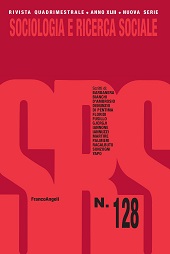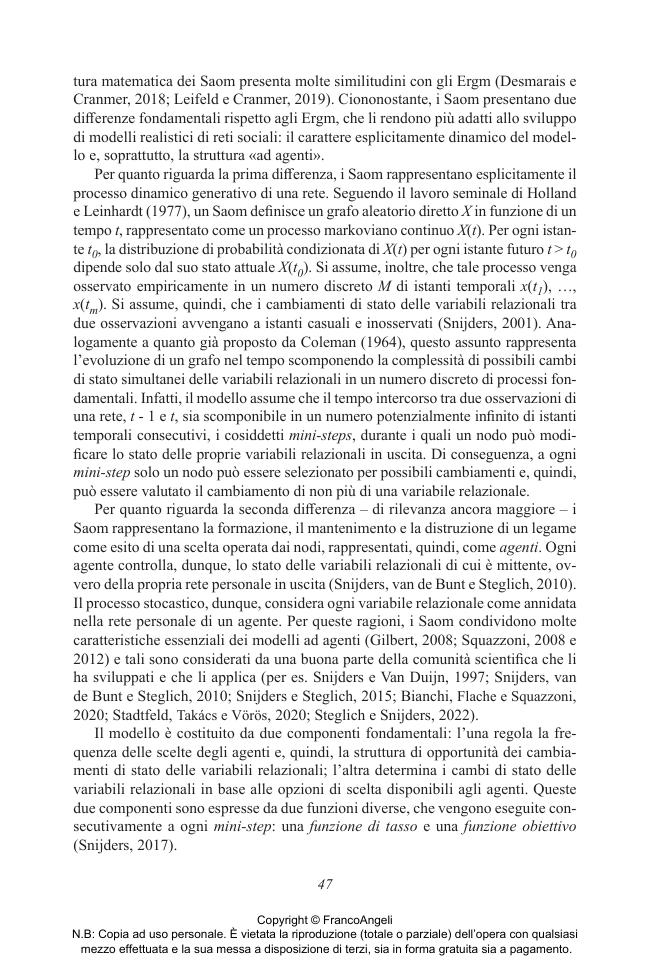I modelli statistici delle reti sociali : un'analisi critica
P. 35-58
In recent years, analysis of social networks has been equipped with a robust corpus of statistical models, allowing statistical inference and multivariate analysis, beyond the simple description of data. In this way, these models can be used to test hypothetical generative mechanisms of empirically observed social networks. In this article we present and compare the two fundamental classes of statistical models of social networks: the Exponential Random Graph Models and the Stochastic Actor-Oriented Models.
At the same time, we propose a critical analysis of the explanatory power of these models in the light of the assumptions related to the type of rationality of the actors, the information available and the dynamics of the actions. Finally, a proposal of geometry of application of these models is mentioned according to the type of social relations analyzed, the breadth of the network and the institutional and organizational context in which the network develops. [Publisher's text]
Fait partie de
Sociologia e ricerca sociale : 128, 2, 2022-
Articles du même numéro (disponibles individuellement)
-
Informations
Code DOI : 10.3280/SR2022-128003
ISSN: 1971-8446



